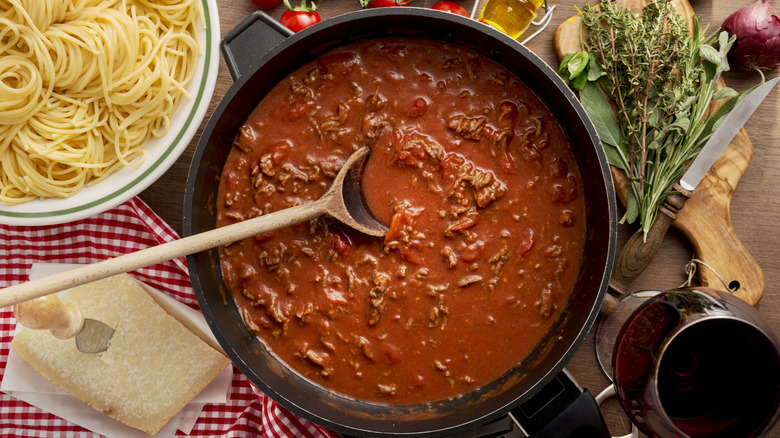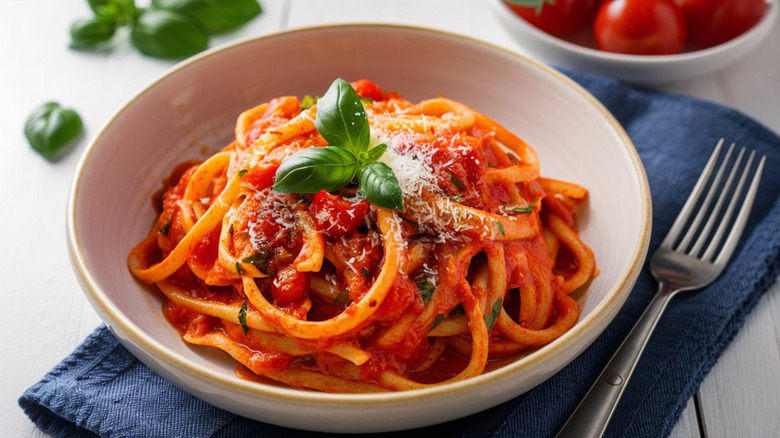Here's Exactly What You're Doing Wrong When Saucing Pasta
Sauce not sticking to your noodle? Looking to make restaurant quality pasta and coming up short? Here's what you're doing wrong, according to Antonio Morichini, chef and owner of Italian restaurant Via Vai, located in New York City. Morichini divulges that the top mistake he's observed when people combine pasta and sauce is using store-bought sauces, which he maintains is less than ideal "no matter the brand." Instead he suggests making fresh pasta sauce from scratch. Morichini explains, "Making fresh tomato sauce, even if using canned tomatoes, will guarantee a far better tasting pasta dish."
Craft a simple marinara sauce for two by combining a can of crushed tomatoes (fresh tomatoes work even better, so long as you pick the right kind), a tablespoon or so of tomato paste (don't skip this ingredient), fresh garlic, olive oil, and whatever fresh or dry Italian spices you have on hand. For that last bit, oregano, basil, and parsley are safe bets for Italian-inspired flavor. Another common mistake includes forgetting to incorporate pasta water when adding pasta to sauce. And while you're at it, pay attention to cooking time. While Morichini opts for an al dente pasta, he suggests that, whatever your preferred noodle texture, you remove the pasta from its boiling water about a minute before it's cooked to your liking. Drain it, says Morichini, "then the pasta and some of the cooking water is added to a pan where the sauce is being prepared to finish cooking together. During this process, the flavors of the sauce will integrate into the pasta and the pasta, its starchy cooking water and the sauce will all unify."
Keep it simple
Making a pasta sauce you love shouldn't be complicated. If you use a couple of quality ingredients and keep a few tips in mind, pasta with homemade sauce can become your go-to quick and easy weeknight dinner. To do this, you have to know how to utilize pasta sauce in your dish. As chef Antonio Morichini instructs, "Make the sauce or heat it in a pan big enough to accommodate the strained pasta, add the pasta into the pan with some cooking water to let it finish cooking while stirring with a wooden spoon. Add some grated Parmigiano Reggiano to the pasta and sauce combination, give it a stir, plate it and enjoy!" Remember, a little goes a long way, with typically ¼ a cup of water being suitable for a full pound of pasta. You can also save the whole pot of pasta water, as there are plenty of dishes that benefit from pasta water, including pizza dough.
As for why incorporating pasta water into your sauce is important, it can both help to harmonize the flavors of your dish and, thanks to all the starch from the cooked noodles, will also thicken the sauce just so. "This works with quick sauces like a white ragu and other sauces that are not made in advance, as well as tomato sauce," says Morichini. And if you feel ready for even more culinary pairings, try adding white wine to pasta dishes next.

